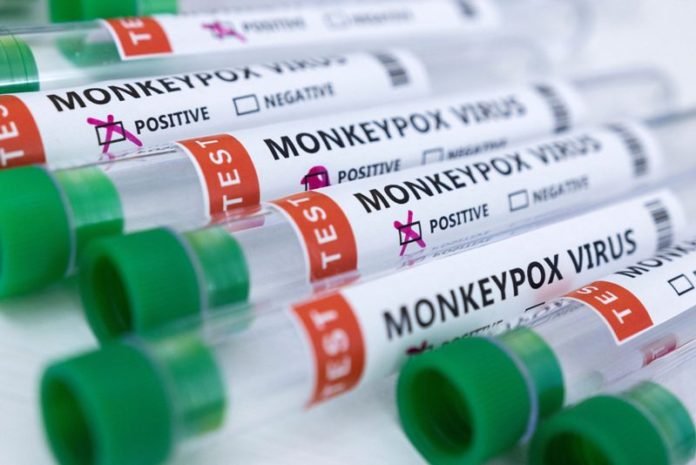The US has confirmed over 17,000 monkeypox cases, according to the latest data from the US Centers for Disease Control and Prevention (CDC).
A total of 17,432 known monkeypox cases had been reported nationwide as of Friday, media reported, citing the CDC data.
New York had the most cases, with 3,124, followed by California with 3,291 and Florida with 1,739, according to CDC data.
So far, the US has the world’s highest tally of monkeypox cases.
Although monkeypox cases are still increasing nationally, the speed of the outbreak appears to be slowing, said CDC Director Rochelle Walensky.
US officials said additional monkeypox vaccines could be made available to the public as soon as September, according to a report of CBS News.
The Biden administration has been facing criticism in its response to the monkeypox outbreak, including failure to order enough vaccines, speed treatments and make tests available to head off the outbreak.
“We should have been able to contain monkeypox — it was detected early and already had tests, a safe vaccine and an effective treatment. But a chronically underfunded public health system, often lacking even basic supplies like testing swabs and syringes and depleted by two-plus years of the Covid-19 pandemic, failed this most basic test,” said a report of The Hill.
Earlier, The World Health Organization said Tuesday it saw “encouraging” signs the monkeypox epidemic was slowing in Europe and heading “in the right direction”, calling on countries to double down on efforts.
“There are encouraging early signs, as evidenced in France, Germany, Portugal, Spain, the UK, and other countries, that the outbreak may be slowing”, the WHO regional director for Europe, Hans Kluge, told reporters. “It’s going in the right direction”, he added.
However, “to move towards elimination in our region, we need to urgently step up our efforts”.
In the 53 countries that make up the WHO Europe region, which includes Russia and countries in Central Asia, more than 22,000 monkeypox cases have been registered across 43 countries, accounting for more than a third of cases worldwide.
Last week, the WHO reported a 21 percent decline in new cases worldwide after four successive weeks of increases.
In order to eliminate the spread of the virus in Europe, the WHO urged countries to continue with measures of monitoring, targeted vaccinations, identification of contact cases, and engaging with the male homosexual community, where the virus has mainly been spreading.
Kluge cited the example of Portugal, which, “in the absence of a full fledged vaccination campaign, did manage to curb the increase through behavioral change and engaging with the communities”.
Read more Health News

